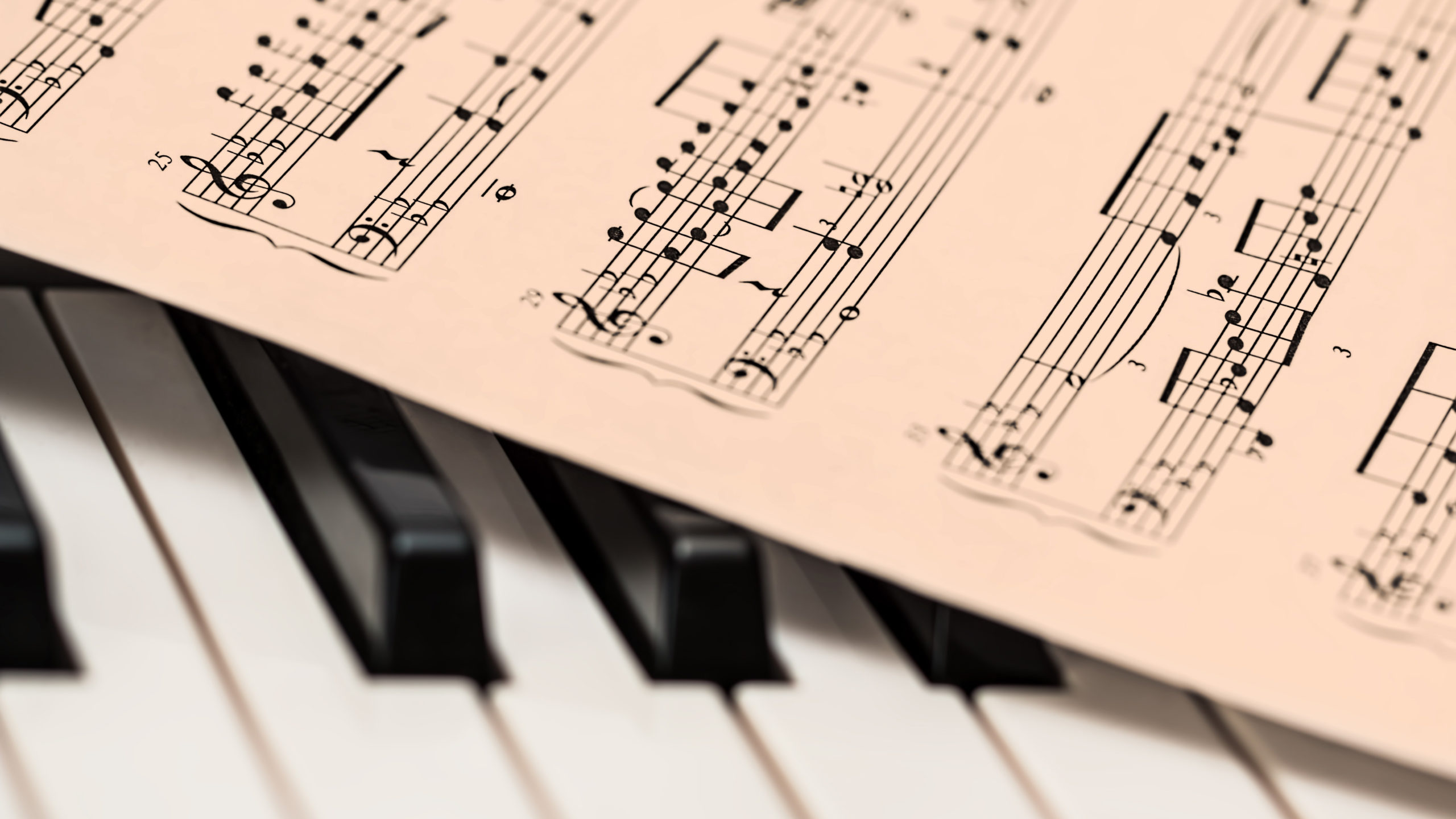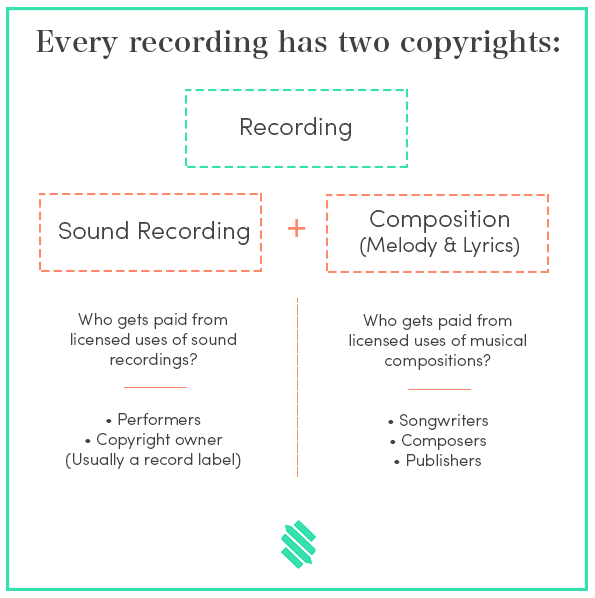
Music publishing deals are an important part of making sure you get the money you’re due from the music you release into the world. It’s magical when everything comes together on a song, but to reap the benefits, you need to make sure your deals are in order. Though musicians are some of the most creative minds, they aren’t always the most business-savvy individuals. But, that’s okay! We’re here to help.
Before you go signing on the dotted line, do your research. Read on to discover more about the types of music publishing deals and what’s best for your professional needs.
What is music publishing?
A musician’s income can come from many places. Publishing assets is the act of commercially exploiting a work (in a good way) and administering the music copyright(s). This can be done by the owner (artist/songwriter) or by a hired publisher/administrator.
Music publishing deals are determined based on various factors like the song’s ownership and administration, the period of time outlined, geographic location, and financial considerations.
Once a musician’s song is documented through writing or recording, that person is the copyright owner. Ownership provides artists with control over who is legally allowed to reproduce, distribute, perform publicly, sync/license, display, or sample the master recording.
How do music publishers make money?

To start earning money on your music, the administrator of your copyright will grant music publishing licenses and receive royalties. A solid publisher will also pitch your songs to music supervisors for placement in film and TV, and they might set you up with other artists or writers to collaborate with.
Music supervisors provide administrative support to help you collect royalties for your music, either domestically or internationally. This can differ greatly, depending on whether your music is sold in digital or physical format (mechanical royalty) or collected by a performance rights organization (PRO) like ASCAP or BMI, which issues a performance license when music is played on the radio (terrestrial, satellite, and internet), television, commercials, or in live venues.
To get a better idea of what PROs do — and how to calculate royalties — here are the three major players: ASCAP (The American Society of Composers, Authors, and Publishers), BMI (Broadcast Music, Inc), and SESAC.
Publishing deals are structured and administered according to their unique terms. In music publishing, the publisher and the writer have equal shares.
There are also two main types of deals: administrative and co-publishing.
What is an administrative deal?
A music publishing administration agreement (or “admin” deal) traditionally allows a songwriter/creator to retain full ownership of their composition. There’s an administration fee paid to the publisher/publishing company (about 10-15 percent) to manage the day-to-day operations of collecting all the revenue earned from the recording.
This type of music publishing deal typically provides more flexibility for both the writer and the publisher. For example, there are specific restrictions (as well as allowances) that an administrator can perform without explicit approval from the writer. Another advantage is that the period of time is short and variable (often between 2-3 years) compared to life-of-copyright deals like ghostwriting deals or work-for-hire agreements.
Administrative licensing deals
In this type of deal structure, the creator owns the master but licenses them to a label. The label is then responsible for marketing and distributing the masters in exchange for a percentage of sales.
Depending on the status and estimated sales potential, the label may offer an upfront advance or customary upfront earnings, while a shorter-term limit might be based on the cycle of a particular EP/LP release. In this case, the label works for the artist.
An extreme case of an admin deal is the “360 deal,” which allows a label to collect revenue from all sources of a musical artist’s income (e.g. sales, touring, publishing, endorsements). In this case, the label owns the master recordings in perpetuity (forever-ever), and artists are essentially working for the label which requires contractual obligations.
What is a co-publishing deal?
This is the most common deal for songwriters, where the creator splits ownership with a publishing company. While it costs an artist a portion of their rights and control over their compositions, the tradeoff may be worth it over time.
A simple way to think about a co-publishing deal is that with every $1 your song earns, $.75 cents comes back to you. With 25 percent of your hard-earned money going to your music publisher, it may sound like an exorbitant loan, but unlike a loan from a bank, a loan from a good publisher (in the form of an advance) comes with perks like sponsorships and/or incentives.
The publisher and songwriter typically co-own the publisher’s share of publishing equally (i.e. 50/50). This really means that the publisher owns and retains 50 percent of half of the total revenue from songs created or assigned during the term of your agreement. In other words, 25 percent of the total revenue.
So, if your songs happen to earn $500,000 of revenue, $125,000 will go to the publisher and $375,000 will go to you (once you pay off your advance from the publisher and give your manager their cut).
In this arrangement, the co-publisher has control over the quality of your administration. Before getting swayed by music publishing deal advances, you need to take this into serious consideration.
Publishers offer what they predict they can make back in order to spread the risk around. As the creator, you need to consider what you want to bring to the table, especially in the case of multinational publishing houses.
What is a “full” publishing deal?
The least common publishing deal is a “full” publishing deal. The publisher owns and retains 100 percent of the publisher’s share of publishing all songs that are created or assigned during the negotiated term. This basically means that the publisher owns all of your songs.
Music publishing deal advances may be much larger, but your recoup rate — and ongoing royalties — are effectively only 50 percent of total revenue on these songs (in a co-publishing deal, you get 75 percent). Before you sign a full publishing deal, weigh your options carefully.
Consider your music publishing deal options
Administration quality can tip the scales for an artist enormously, which is the very reason why certain artists “sell out” by going with major labels and why Prince boycotted music streaming platforms.
It all comes down to tiny details and the balance between the ownership and administration of the recording. If it happened to Taylor Swift, it can happen to anyone.

Know your (modern) history
The music business has gone through numerous changes over the years and is still changing rapidly. The demands for artists to keep up with the times are greater than ever. For example, until recently, music didn’t take digital music production into consideration, so it’s essential to advocate your value as a musician and register with the Mechanical Licensing Collective (MLC).
Stay organized and save everything
A music publishing deal might be a game-changer, but you need to take care of yourself first. If you get too comfortable with your newfound support and misplace your deal memo/final contract copies, you’ll be in hot water. Use your phone to take pictures of all of your receipts and documents for backup.
Do your homework before signing anything
Reflect on what you really want, what you need, and speak to a trusted lawyer before signing any sort of contract. By understanding where you are, you can make the right moves. Whether that’s self-publishing or finding the right publisher to take your career to the next level.
For more, check out our guide on the four essential things to look for in a music publisher.




